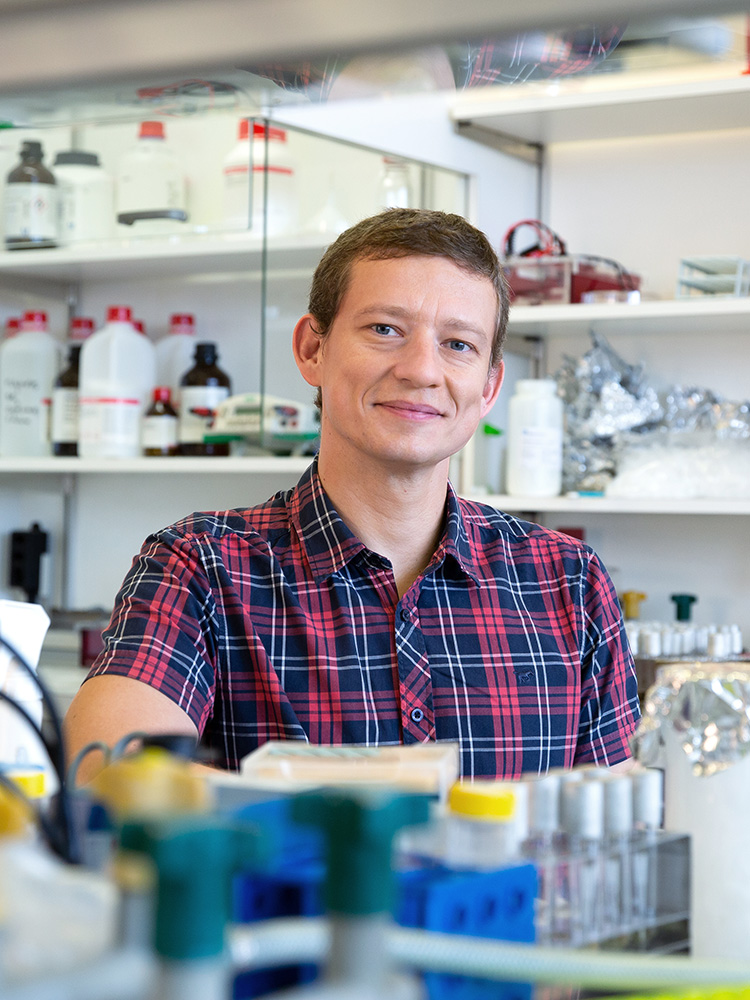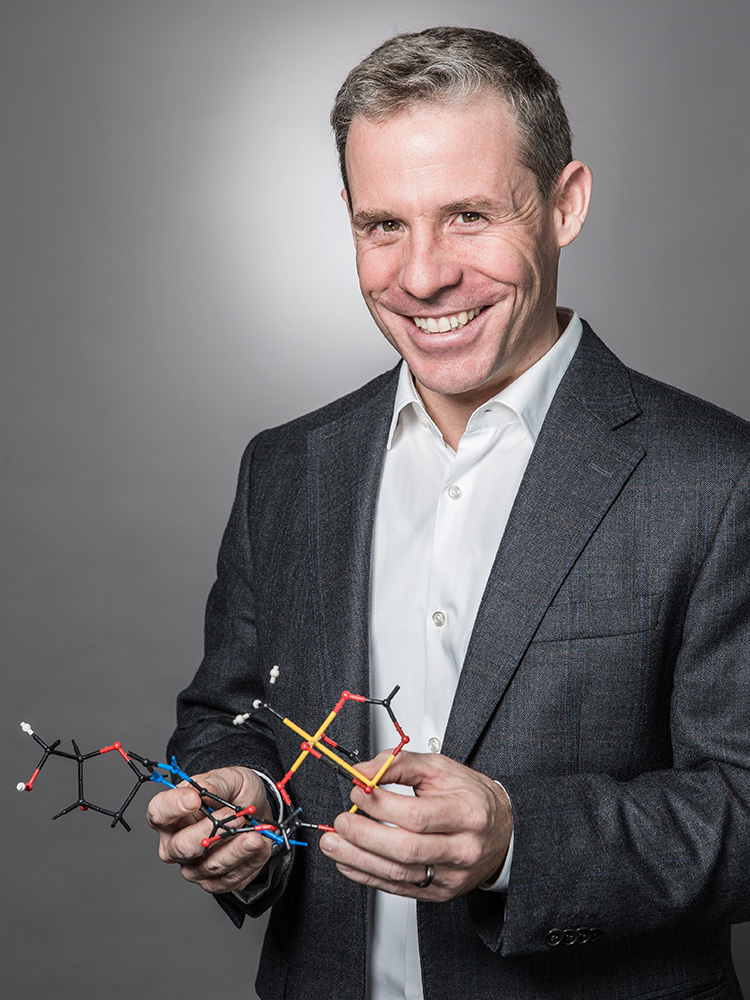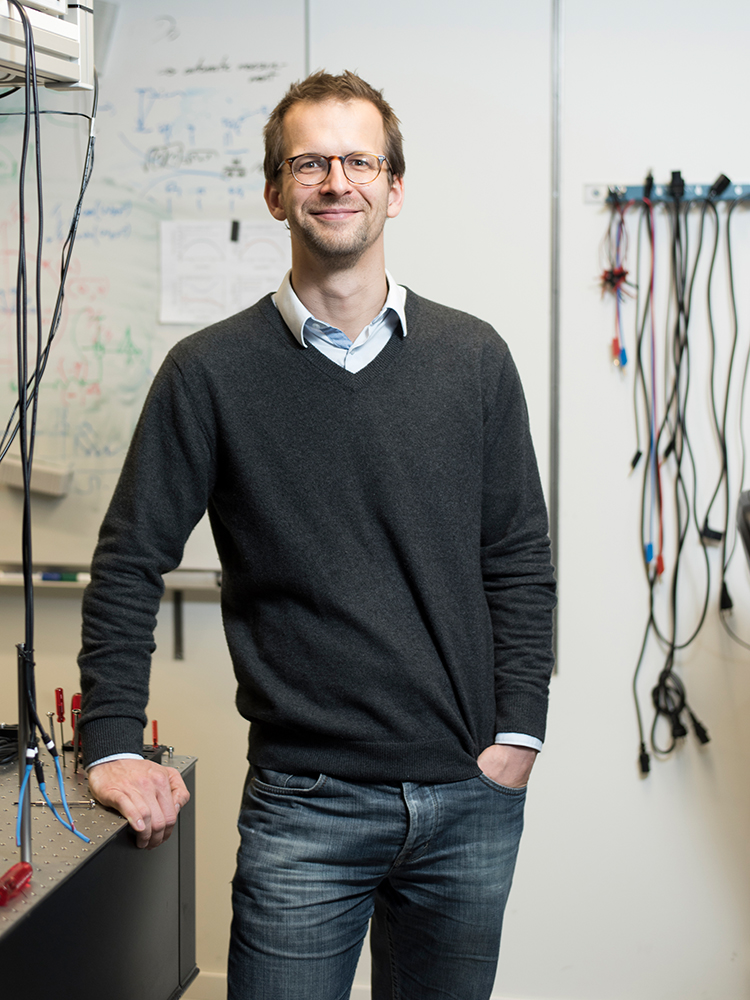Three ERC Consolidator Grants for research in Basel
Three researchers from the University of Basel receive one of the coveted ERC Consolidator Grants from the European Research Council (ERC). The funded projects come from the Biozentrum, Chemistry and Physics departments and will receive a total of 6.7 million Euros over five years.
10 December 2019
The Consolidator Grants of the European Research Council (ERC) will be awarded for the sixth time this year. The ERC thus supports highly qualified young researchers who have seven to twelve years of experience after completing their doctorate and who have a promising scientific track record. The researchers receive an average of two million euros for a five year project.
Bacterias’ molecular weapon
Prof. Marek Basler investigates a tiny bacterial injection device, the so-called type VI secretion system (T6SS). This nanomachine functions like a harpoon and is used by various bacteria to inject lethal toxins into neighboring cells. With his ERC project, Basler hopes to gain new, detailed insights into how the T6SS works. Basler will investigate four different bacterial species. These model bacteria will be used to elucidate the basic principles of spatial and temporal control of the localization of individual T6SS components. Since T6SS also plays a role in infectious diseases, the results could open up new perspectives in the fight against bacterial infections.
In 2013, Marek Basler was appointed as an Assistant Professor of Infection Biology at the Biozentrum of the University of Basel and was promoted to Associate Professor in 2018.
Small molecules to reprogram cancer signaling
In his research project, Prof. Dennis Gillingham studies how small molecules can take advantage of the genomic instability of cancer.
Genomic instability is a hallmark of cancer because it provides the means for rapid evolution. However, this very instability also creates unique vulnerabilities in cancer that can be exploited. The ERC project proposes to create small molecules that can infiltrate and reprogram signaling events that occur around sites of DNA damage or when DNA replication stalls. Such events occur frequently in genetically unstable cells, therefore this approach should deliver selectively toxic molecules that may be relevant for the development of new therapeutics. Gillingham`s project is funded with 1.9 Million Euros over five years.
In 2010 Dennis Gillingham was appointed as a tenure-track assistant professor at the department of Chemistry and was promoted in 2016 to associate professor.
In pursuit of Van der Waals magnets
Prof. Patrick Maletinsky will study atomically thin magnetic systems, with the help of novel quantum sensors.The so-called Van der Waals magnets have only recently been discovered, but already constitute a very active field of research. The quantum sensors developed in Basel, which will be used in this project, form a central pillar of the emerging field of quantum technologies and will allow new insights into Van der Waals materials. The aim is to bring the atomically thin magnets closer to possible applications in spintronics.
Patrick Maletinsky was appointed assistant professor with tenure-track in experimental physics at the University of Basel in 2012 and promoted to associate professor in 2017.
European support for excellent scientists
The ERC Consolidator Grants are a funding instrument within the framework of "Horizon 2020" to realize high-risk research projects with high potential. This year, the ERC received 2,453 funding applications, of which a total of 301 were approved throughout Europe. 23 ERC Consolidator Grants went to institutions in Switzerland and three to the University of Basel. The next deadline for proposals will be on 4 February 2020.
Further information
- Anita Soltermann, University of Basel, Grants Office, phone +41 61 207 29 39, email: anita.soltermann@unibas.ch






